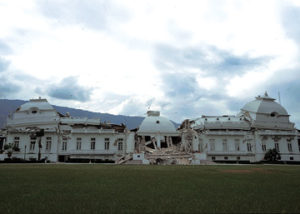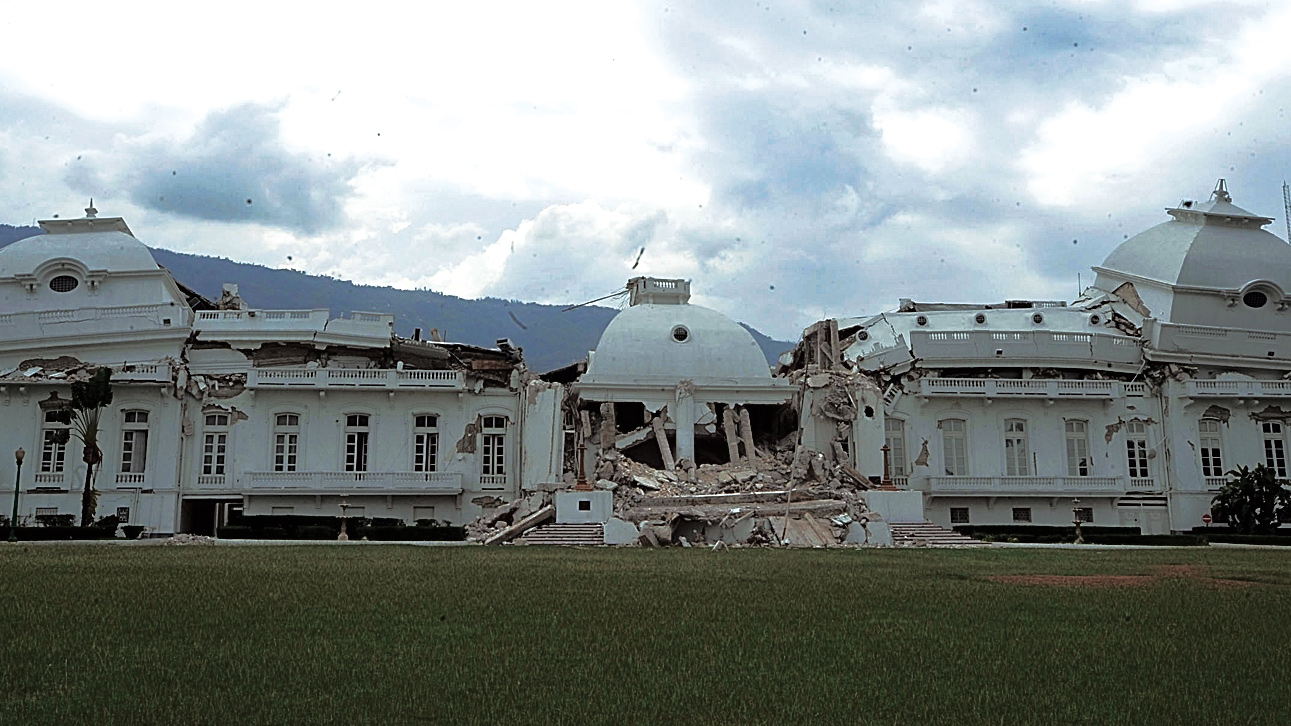Lori-Ann Russell
Contributor
January 12, 2011 marked the anniversary of the catastrophic earthquake in Haiti that forever changed the lives of many people around the world.
Foreign Affairs and International Trade Canada was one of the first organizations to announce Haiti had been left in a critical condition; that department has also been reporting on the progress made to re-establish what had been painfully lost.

The 7.0-magnitude earthquake was one of the worst in Haiti’s history, with death tolls ranging from 92,000 to 316,000. Within hours, an outpouring of sympathy came from all over the western world, despite decades of arguable indifference toward the region.
On Jan. 1, 1804, Port-au-Prince, Haiti’s capital, declared its independence from the French, becoming one of the second oldest independent nations in the western hemisphere. Now, in 2011, Haiti is recognized as one of the poorest countries in the world, suffering in poverty under a malicious government ignorant of the political crisis that lies beneath heavily treaded soil.
During the election of 1957, Dr. François Duvalier, otherwise known as “Papa Doc,” was elected president of Haiti. His reign, unforeseen by the Haitian community, would release a mass of terror that would bring Haiti to its knees in the years to come.
During his term as president, Doc enacted a constitution that secured his position as president by naming himself “president for life” – it ended only with his death in 1971.
Even after he’d died, the terror continued. Papa Doc created a group known as the Tonton Macoute, who, at his command, participated in the mass killings of thousands who failed to adhere to Doc’s inhumane policies.
In an effort to truly solidify his role in parliament, Doc later nominated his son, then-nineteen-year-old Jean-Claude Duvalier, to act as the next ruler of Haiti. Like his father, Duvalier continued allowing the Tonton Macoute to torture and kill innocent people until he undertook a self-imposed exile to France following a public revolt in February 1986.
Today, Haiti’s bloody history has again been brought into the public forum. Jean-Claude Duvalier, colloquially known as “Baby Doc,” has returned to Haiti after 25 years.
The return of Baby Doc has inspired a great deal of fear amongst the Haitian people. Like divers in shark-infested waters, Haitians remain suspicious of Doc’s arrival; his motives have not been disclosed to the media and the country’s citizens.
His arrival is one that sparks many questions, especially as Haiti undergoes its most crucial political debate since the inauguration of Baby Doc years earlier. The current president, René Préval, is facing intense media scrutiny following accusations of foul play during last November’s presidential elections.
The onset of an earthquake triggered an immediate global response to help the injured, sick and those in dire need of medical attention. Canada’s contribution toward the Haiti earthquake rebuild effort ranged from food donations to military re-enforcement, to a spot on the billboard chart with the cover of the Michael Jackson single “We are the World.” The tremendous contribution toward the Haitian disaster relief, however, has done little to address the perpetually unstable political climate of the region.
The re-construction of the capital has provoked many Canadians to continue donating, yet many Haitians have yet to benefit from the fruits of their unexpected labour. The lack of progress surrounding the Haitian cause is, in many ways, astonishing. In an era that has encapsulated masses, support should be easily available without question for said crisis.
Dictators aside, Haiti’s suffering is far from over. Haiti’s long known battle with HIV and AIDS has added more fuel to the fire that has consumed their war on disease. AIDS has been at the forefront of Haiti’s economic issues, and alongside December’s cholera outbreak, it lingers heavily in the midst of this disaster.
The efforts put into eradicating Haiti’s troubles are unfortunately not enough. Haiti is in desperate need of repair, and current restoration efforts just aren’t cutting it.
Canadian forces, like many others, have implemented strategies to restore what Haiti has lost. The anniversary of the earthquake that has destroyed the lives of thousands was, in a sense, the crack in the foundation that struggled to support Haiti’s socio-economic issues.
For many years, the world has been dimly aware of Haiti’s struggle to overcome oppressive political leaders that exploit others; it has been their greatest challenge as a nation. The lack of progress that has plagued Haiti’s economic, social and political power lies in the hands of its people. The fight for power in a powerless country is a battle that has been fought for centuries. With the return of a vicious dictator, Haiti is on its feet, as the fight for survival is far from over.
Now, fate lies in the hands of a people who anticipate a brighter future, in hopes that history will not be repeated once more.
Haiti’s troubles are far from over


